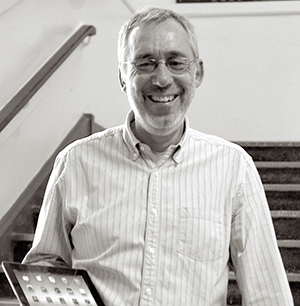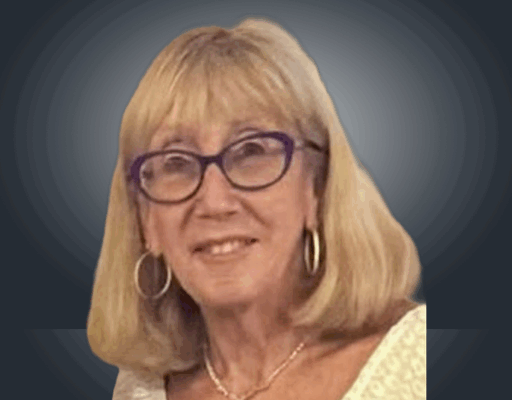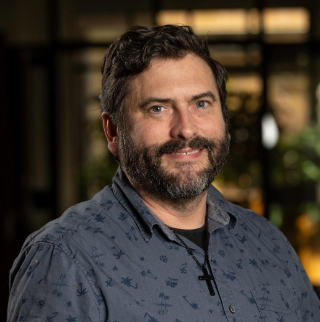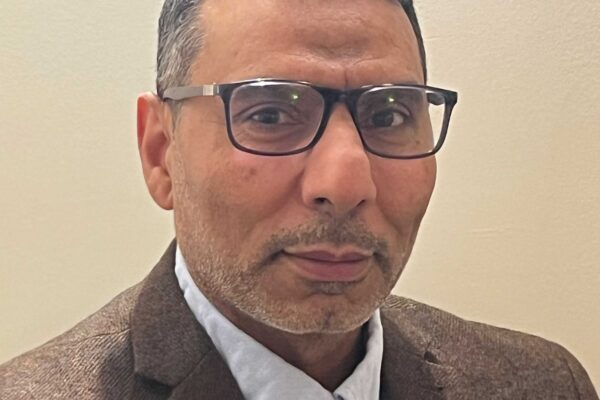 MassCUE is pleased to announce Robert Thomas as our Featured Educator for December 2022!
MassCUE is pleased to announce Robert Thomas as our Featured Educator for December 2022!
Technology can add real value to education. That’s been the guiding principle for Bob Thomas, who has spent his career successfully integrating technology into the school day and beyond. Thomas retired from his position as an Educational Technology Specialist at the Driscoll School in Brookline, but returned to serve as a Digital Learning Specialist for the district. Throughout his career he has held several different roles that have allowed him to advocate for educational technology.
“Technology offers lots of different opportunities for kids to show what they know,” Thomas says. “Some things are easier to do and have a wider audience when they are done in a digital space.”
He points to an elementary tool called Seesaw that allows students to take pictures of their work and share it with their parents, among other things. The Brookline school system uses a classroom management system called Canvas, which Thomas says offers more great ways for students to interact with each other and what they are learning in new ways. Instead of old-school posters presented at the front of the class, teachers can assign students to present online through Canvas and can assign online discussions.
“I really like having kids do online discussions (which teachers can monitor through Canvas) because it’s a place where they can do it safely. It’s learning how to behave in an online space,” Thomas says. “It also affords opportunities for the quieter kids to respond and provides for more reflective responses.”
In his current role, Thomas administers online tools for teachers in the district – working to ensure teachers know what tools are available, how the tools can fit into what they are doing in the classroom and how to use them to improve kids’ learning experiences. He says this role has changed quite a bit since the pandemic, which opened up funding for new technology and a 400-student remote academy that remained open through the 2020-21 school year.
“One good thing was that we got a lot of teachers using online tools,” Thomas says. “We bought some tools that we had been considering for a number of years, but couldn’t afford. Some of those have been great additions to the classroom.”
Some of those tools include Seesaw, tools from Google for Education such as Jamboard, which is a great collaboration product for students, Learning Ally, which is one of several tools aimed at students with special needs and WeVideo.
“For me, the constructing of media is very important. I think it’s a big part of digital literacy,” says Thomas. “When kids can make a video, add sound to video and add images, they really get a sense of how easy it is to manipulate people. Learning to use these tools in a space that has guard rails on it is important.”
As students returned to the classroom in person, there has been some pushback from elementary educators and parents on the amount of screen time for younger kids. But Thomas says using technology with younger students is important in terms of where we’re going as a culture and a society.
“We’re asking third grade kids to take MCAS on the computer. We’d be remiss if we don’t give them experiences with computers before they are sitting there taking that test,” he says.
A long-time advocate of ISTE standards and an ISTE-certified instructor, Thomas says the way we use technology in education is evolving.
“20 years ago we were having kids play games and practice skills on the computer. It was a good tutor,” Thomas says. “ISTE focuses on using the computer as a thinking tool – using it to create things and share information with classmates or the larger world.”
Moving forward, Thomas says he’d like to see more flexibility and less of a focus on aged-based curriculum, as well as more group work for students with shorter time frames (6-week courses for example). Throughout his career, his vision for successfully integrating technology has made him a trailblazer.
He started his career as a teacher and worked at the Driscoll School in Brookline for 19 years, turning it into a premier learning center within the district and a showcase for excellence within the area of technology. More than a decade ago he was the first to pilot Google Education accounts for students at Driscoll, followed by the launch of Chromebooks at the school, which became a model for the district.
“20 years ago I was running a school with maybe 70 computers – none of them mobile. To be able to give kids an easy, untethered tool to use with the Chromebooks, that was a big plus,” Thomas says. “When we started letting the kids take them home, it sort of extended the school day, which was exciting. Now – being able to provide a device for every kid – we used to dream about that in 2002.”
Bob Thomas has been an educator for more than 35 years. He recently retired from his position as an Educational Technology Specialist at a K-8 School and is currently working part-time as Brookline’s Digital Learning Specialist.
Bob has had a wide range of teaching experience. He’s taught upper elementary and middle school and he worked for 16 years as an instructor at Boston University’s School of Education. At BU, he taught classes in the graduate program and developed and led online courses on the use of educational technology – acting as a mentor to aspiring ed-tech teachers.
 Print this post
Print this post



